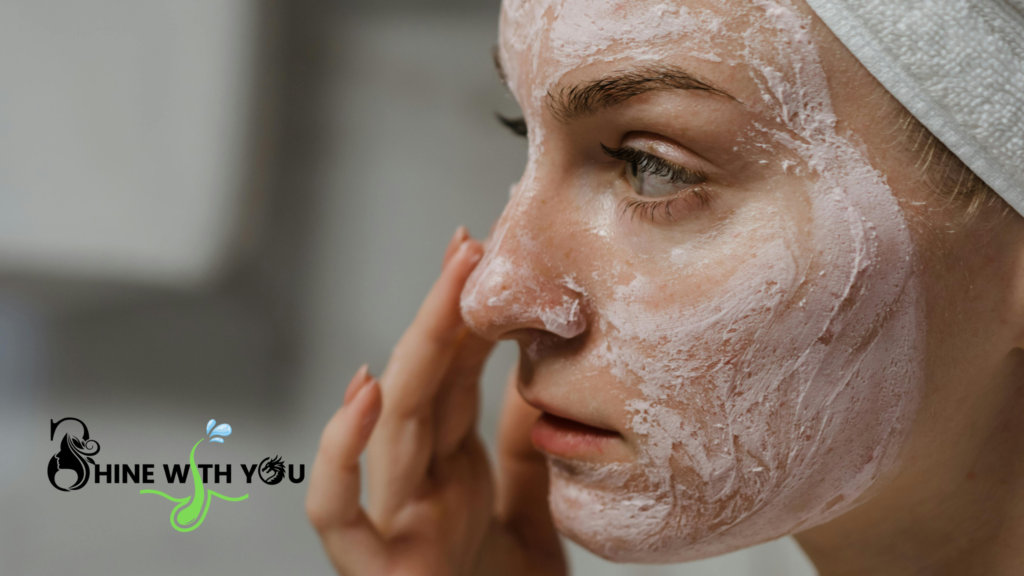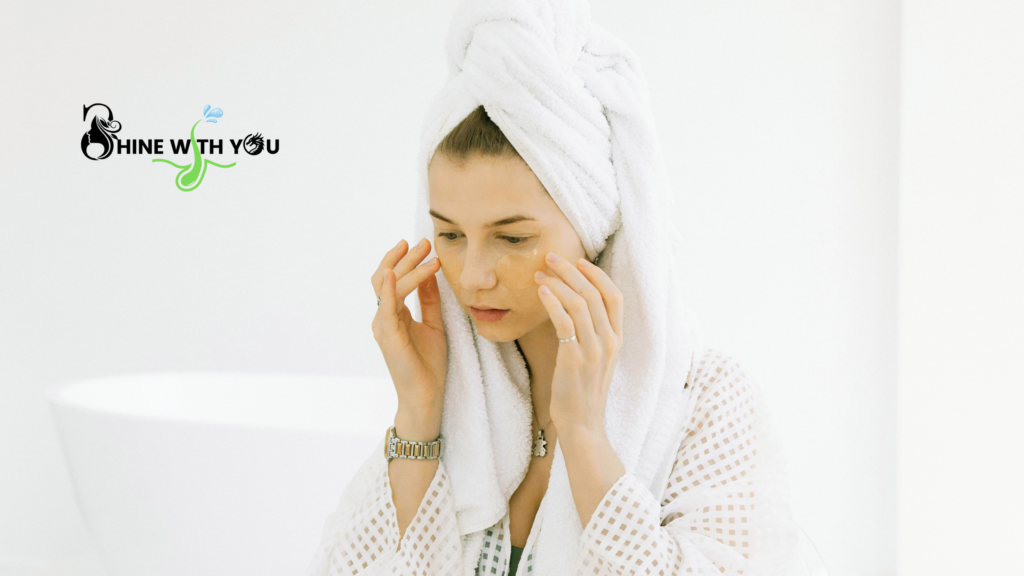Skin Care is very important because every organ and every part of the human body has a role; our skin is one of the most important parts. The skin protects you from dust, sun, and rain. It also fights dangerous diseases, germs, and harmful rays of the sun, stopping them from entering the body. The skin also produces melanin, which gives your skin its color to make you look and present well.

★Why Do People Care About Skin Care?
People care about skincare for several reasons:
- Health: The skin is the body’s largest organ, and taking care it helps maintain healthy skin, preventing issues such as acne, dryness, and skin diseases.
- Appearance: Skin care can enhance physical appearance, leading to improved confidence and self-esteem. Many people want to maintain a youthful appearance and prevent signs of aging.
- Anti-Aging: Many people use Skin care to reduce signs of aging like wrinkles and age spots.
- Protection: Skin care products, like sunscreen, protect against environmental damage, such as UV rays and pollution.
- Comfort: Proper Skin care can prevent discomfort associated with conditions like dryness, itching, and sensitivity.
- Self-Care: Skincare routines can be a form of self-care, providing relaxation and a sense of well-being.
- Social Influence: Media and social platforms often promote skincare, influencing people to adopt these practices.
- Professional Needs: Certain professions, such as modeling or acting, place a higher emphasis on maintaining clear and healthy skin.
Each person may prioritize these reasons differently based on their personal values and experiences.
★Do Skin Care Products Actually Work?
Yes, many skincare products do work, but their effectiveness can vary based on several factors:
- Ingredients: The active ingredients in a product determine its potential effectiveness. For example, products with ingredients like retinoids, hyaluronic acid, vitamin C, and salicylic acid are generally effective.
- Formulation: The way a product is formulated can impact how well the ingredients are delivered to the skin and how effectively they work.
- Skin Type: Different skin types (oily, dry, combination, sensitive) respond differently to products. It’s important to choose products suited to your specific skin type.
- Consistency: Regular and consistent use of skincare products as directed is key to seeing results.
- Quality: High-quality products from reputable brands tend to be more effective due to better formulation and higher concentrations of active ingredients.
- Underlying Issues: Some skin issues might require more than over-the-counter products and might need medical treatment or prescription-strength products.
- Expectations: Realistic expectations are important. Some products may provide immediate results, while others require prolonged use.
- Professional Guidance: Consulting with a dermatologist can help in selecting effective products and addressing specific skin concerns.
However, not all products work for everyone, and some may cause adverse reactions. It’s important to patch test new products and read reviews and clinical studies when possible.
★Why Are People Interested in Skin Care?
People are interested in skincare for several reasons. Among them, personal appearance is a major factor of interest in skin care.
- Personal Appearance: Healthy skin often looks more attractive, and people seek to improve their appearance.
- Self-Esteem and Confidence: Clear, healthy skin can boost self-confidence and self-esteem.
- Health Concerns: Skincare helps address and prevent various skin conditions, such as acne, eczema, and sun damage.
- Anti-Aging: Many seek to reduce or delay signs of aging, such as wrinkles and age spots.
- Preventing and Managing Skin Issues: Many people use skincare to address specific problems like acne, hyperpigmentation, rosacea, or eczema. Preventative care can also delay signs of aging such as wrinkles and fine lines.
- Self-Care Ritual: Skin care routines can be a relaxing and enjoyable part of daily self-care.
- Cultural and Societal Influences: Societal norms and cultural standards often emphasize the importance of good skin, driving interest in skincare.
- Professional Requirements: Certain professions, like modeling or acting, may place a greater emphasis on maintaining clear, healthy skin.
These factors combine to make skincare a significant and continually growing interest for many people.
★Why Is Skin Care Important in Society?
Skincare is important in society for several reasons:
- Self-Esteem and Confidence: Healthy, clear skin can improve self-confidence and self-esteem, affecting social interactions and overall mental well-being.
- Health and Hygiene: Healthy skin is crucial for overall health. It acts as a barrier against bacteria, viruses, and other environmental hazards. Good skincare practices help maintain this barrier and prevent infections and skin diseases.
- Aesthetic and Beauty Standards: Clear, radiant skin is often associated with beauty and attractiveness. Society places a high value on appearance, and good skincare is seen as a way to achieve and maintain a youthful and appealing look.
- Cultural Standards: Many cultures place a high value on physical appearance, with clear, youthful skin often seen as a sign of beauty and vitality.
- Professional Appearance: In many professions, a well-groomed appearance, including healthy skin, can be crucial for making a good impression.
- Aging Concerns: Skincare helps in managing the signs of aging, which is a common concern for many people.
- Social Influence: Media, celebrities, and influencers frequently emphasize skincare, making it a significant part of contemporary beauty standards.
- Preventive Care: Regular skin care routines can prevent long-term damage and maintain skin health, reducing the need for more invasive treatments later on.
- Economic Impact: The skin care industry is a significant part of the global economy. It drives innovation, creates jobs, and influences consumer spending patterns.
- Psychological Benefits: Skin care routines can serve as a form of self-care, providing a sense of routine, relaxation, and personal attention.
These factors underscore why skincare is considered important in society, reflecting its multifaceted impact on health, beauty, confidence, and economic activity.

★Why Does Everyone Need Skin Care?
Everyone needs skincare for a variety of reasons that cater to both health and personal well-being :
- Basic Hygiene: Cleansing the skin removes dirt, oil, and pollutants that accumulate daily, preventing clogged pores and skin infections.
- Health Maintenance: The skin is the body’s largest organ and serves as a primary barrier against environmental hazards like bacteria, viruses, and pollutants. Proper skincare helps maintain this barrier, preventing infections and other skin-related health issues.
- Protection: Skin care products like sunscreen protect the skin from harmful UV rays, which can cause sunburn, premature aging, and skin cancer.
- Hydration: Moisturizing helps maintain the skin’s hydration levels, preventing dryness, flakiness, and irritation.
- Prevention: Regular use of skincare products can prevent common skin issues like acne, eczema, and premature aging.
- Healing: Skin care products can aid in healing and repairing damaged skin, promoting faster recovery from conditions like acne or minor wounds.
- Aging: Anti-aging products help reduce the appearance of fine lines, wrinkles, and age spots, maintaining a youthful appearance.
- Improved Appearance: Healthy skin looks better, which can enhance overall appearance and boost self-confidence. Clear, smooth skin often makes people feel more attractive and presentable.
- Confidence and Self-Esteem: Healthy skin can boost self-confidence and improve overall well-being.
- Barrier Function: The skin is the body’s first line of defense against environmental factors. Proper skin care helps maintain the integrity of this barrier.
While everyone’s skincare routine might differ based on individual needs and skin types, basic skincare practices benefit all.
★Why Is Skin Health Important?
Skin health is important for several reasons that affect both physical well-being and quality of life:
- Protection: The skin acts as a barrier, protecting the body from harmful environmental factors such as bacteria, viruses, pollutants, and UV radiation.
- Regulation: It helps regulate body temperature through sweating and blood flow.
- Sensation: The skin contains sensory receptors that allow us to feel touch, pain, and temperature, which is crucial for interacting with the environment.
- Immunity: Healthy skin supports the immune system by acting as a first line of defense against pathogens.
- Vitamin D Production: Skin exposure to sunlight helps the body produce vitamin D, which is essential for bone health and immune function.
- Aesthetic and Psychological Benefits: Healthy skin contributes to a person’s appearance and can boost self-esteem and confidence. Feeling good about one’s skin can have positive effects on mental health and social interactions.
- Overall Health Indicator: Skin health often reflects overall health. Conditions like dehydration, nutritional deficiencies, and certain diseases can manifest through the skin.
- Wound Healing: Healthy skin is better equipped to heal wounds and recover from injuries, reducing the risk of infections and scarring.
These reasons underscore the importance of maintaining skin health through proper skincare practices, a balanced diet, adequate hydration, and protection from environmental factors.
★What Is the Most Important Thing About Skincare?
The most important thing about skin care is consistency in following a routine that addresses your specific skin needs. Consistent care helps maintain skin health, prevent issues, and achieve desired results over time. Here are key aspects of an effective skincare routine:
- Daily Cleansing: Removing dirt, oil, and impurities to keep pores clear and prevent breakouts.
- Moisturizing: Keeping the skin hydrated to maintain its barrier function and prevent dryness and irritation.
- Sun Protection: Using sunscreen daily to protect against harmful UV rays, which can cause premature aging, sunburn, and skin cancer.
- Suitable Products: Using products that are appropriate for your specific skin type and concerns to achieve the best results.
- Addressing Specific Concerns: Incorporating treatments for specific issues, such as acne, hyperpigmentation, or aging, can help improve the overall condition of your skin.
- Healthy Lifestyle: Complementing skin care routines with a healthy diet, adequate hydration, sufficient sleep, and stress management for overall skin health.
Consistency ensures that these practices become a routine, leading to long-term benefits and healthier skin.

★Are Facials Good for the Skin?
Yes, facials can be beneficial for the skin. Here are some potential benefits:
- Deep Cleansing: Facials provide a deeper cleanse than regular at-home routines, helping to remove impurities, dirt, and oil from pores.
- Exfoliation: Professional exfoliation during a facial can remove dead skin cells, promoting cell turnover and revealing fresher, brighter skin.
- Improved Circulation: The massage component of a facial can enhance blood flow, promoting a healthy, glowing complexion.
- Hydration: Facials often include moisturizing treatments that can deeply hydrate the skin.
- Targeted Treatments: Facials can be customized to address specific skin concerns such as acne, aging, hyperpigmentation, and dryness.
- Relaxation: The experience of a facial can reduce stress and provide a sense of well-being, which can positively impact skin health.
- Expert Advice: Getting a facial from a licensed esthetician provides the opportunity to receive professional advice on skincare and product recommendations tailored to your skin type and concerns.
However, it’s important to choose a reputable professional and ensure the facial is suited to your skin type and concerns to avoid potential irritation or adverse reactions.
★How Do I Find My Skin Type?
To find your skin type, follow these steps:
- Cleanse Your Face: Use a gentle cleanser to remove makeup, dirt, and oil. Pat your skin dry with a clean towel. than Wait for 1-2 Hours. Allow your skin to return to its natural state without applying any products like moisturizer or toner.
- Observe Your Skin:
- Normal: Your skin feels comfortable and balanced. It’s neither too oily nor too dry, and there are no noticeable dry patches or excess shine.
- Oily: Your skin appears shiny, particularly in the T-zone (forehead, nose, chin). You might also notice enlarged pores and more frequent acne or blackheads.
- Dry: Your skin feels tight, rough, or flaky. It may also appear dull or have dry patches.
- Combination: You have a mix of skin types. Typically, the T-zone is oily, while the cheeks and other areas are dry or normal.
- Sensitive: Your skin reacts easily to products or environmental factors. It may feel red, itchy, or burn easily.
- Conduct the Blotting Sheet Test
- After waiting for 1-2 hours, gently press a blotting sheet on different areas of your face.
- Normal: Little to no oil on the sheet.
- Oily: The sheet shows oil, especially from the T-zone.
- Dry: The sheet shows no oil, and you may feel tightness.
- Combination: Oil on the sheet mostly from the T-zone.
- Sensitive: Look for reactions or redness from products or environmental exposure.
Understanding your skin type helps in choosing products and creating a skincare routine tailored to your needs.
Join our community! Subscribe to receive updates on [shinewithyou.com]. Don’t forget to share your thoughts and ideas in the comments section below each post. Your feedback will motivate me to provide more new hair and skin care solutions, remedies, and tips Thank you.

These are answers to some very important questions. I have been looking for the right answers to these questions for a long time. Thank you very much for your post.
thanks, hope you found the right answer to your question. Subscribe to more such Hair & Skin related problems and their solutions.